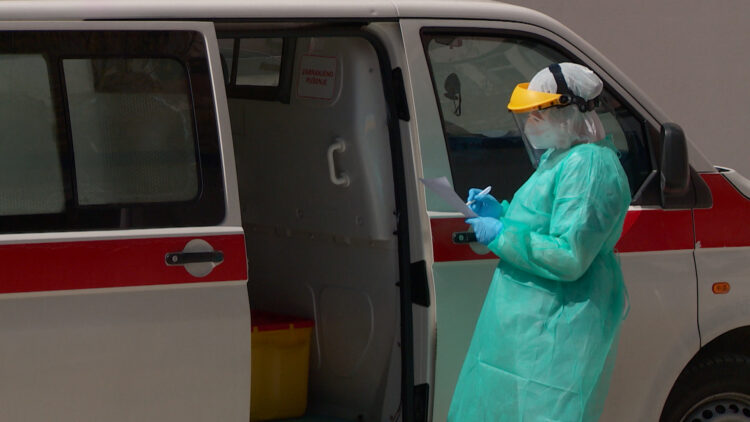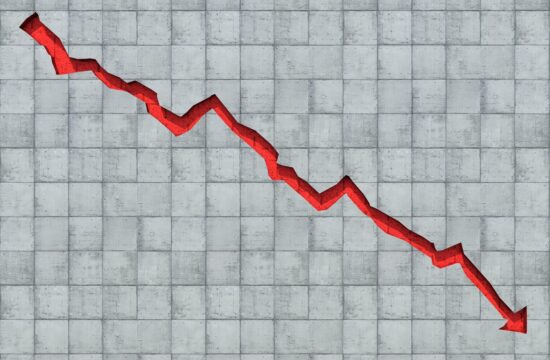
Despite countless warnings and measures taken by health authorities to prevent the novel coronavirus from entering health institutions in Bosnia and Herzegovina, entire departments in several city hospitals have been closed and isolated after staff has tested positive.
As the new coronavirus started spreading in the region and the first cases emerged in the country beginning of March, screening tents popped up in front of all major health facilities in the country.
But it seems it was not enough.
It started in Mostar in mid-March, where a patient was allowed to enter the hospital without being screened for COVID-19 and was moved between two departments by doctors who believed he just had ordinary pneumonia.
Days later, his COVID-19 test came back positive and all 26 hospital workers who were in direct contact with the man, as well as all patients on the two wards, were isolated – 86 people in total.
The man and his family had contracted the virus from a still unknown patient zero in the city, health officials said. He died after a few weeks.
Shortly after, health authorities in Bosnia's Serb-dominated entity of Republika Srpska reported they too have a doctor who tested positive for the virus in a hospital in the town of Doboj. Although authorities said at the time that these were isolated cases, it turned out they were not.
The same entity authorities on March 21 reported that a doctor at the Banja Luka University Hospital caught the virus and that they took all possible precautions to prevent it from spreading further.
Entity Health Minister Alen Seranic confirmed on April 3 that a total of 13 health care workers in the entity are infected, adding that most of them caught the virus outside the health facilities where they work and that it is practically impossible to prevent the virus from infecting medical staff.
Hours later, N1 learned from the Banja Luka University Hospital's general manager that one of the doctors has been put on a ventilator and is in critical condition.
In the other semi-autonomous entity, Bosnia’s Federation (FBiH), the public was alarmed on March 27 with the news that a nurse working at Tuzla's Heart Centre – one of the most modern health care institutions in this part of Europe, specializing in the treatment of cardiovascular diseases – tested positive for the virus.
The hospital, which operates under the name of Medical Institute Bayer, said on March 31 that the nurse was “in contact with her colleagues as well as patients when she first complained of chest pain.”
According to the hospital, she “had not previously shown any symptoms suggestive of COVID-19.” The nurse claimed she had no idea how she became infected with the virus.
On March 28, news broke that a Zenica hospital patient, positive for COVID-19, had been under care at Tuzla's Medical Institute Bayer where he first caught the virus.
Hospital staff swiftly reacted and placed him and all those he was in contact with into quarantine. Other patients at the hospital would later also test positive.
The Tuzla Heart Centre then found that nine of its doctors and nurses had caught the virus.
The capital has not been spared either.
Sarajevo University Clinical Centre general manager Sebija Izetbegovic told N1 that the entire Gastroenterology Clinic had to be isolated because a doctor was coming to work with flu-like symptoms for a while without ever reporting her potentially risky contacts nor testing for coronavirus during that time.
“She only did it (reported the disease) after taking sick-leave,” Izetbegovic said.
COVID-19 also sneaked into the primary health care providers. One of Sarajevo’s largest health care centres, Vrazova, reported that two of its non-medical staff members were infected with the disease.
The health centre is based in Sarajevo’s centre, providing primary health care to a total of 70.294 residents as well as some services to those from other municipalities.
Tuzla was soon back in the spotlight when two of its clinics had to be closed in a matter of days. The Tuzla University Clinical Centre closed its Skin Disease Clinic after it emerged that two employees were infected. Then Neonatology and Paediatric Diseases Clinic was isolated after one of its nurses tested positive.
The hospital management began double-testing all their employees, saying they are not leaving anything to chance.
Although health workers are, in most cases, doing their best to respond to the crisis, the public is concerned as the epidemic is yet to peak in the country.
According to Jurica Arapovic, Mostar University Hospital’s infectious diseases specialist, who spoke to Radio Free Europe on Thursday, it can be expected that the virus will reach its peak in the next 14 to 30 days.
Arapovic, along with one more doctor from Mostar, were later reported to have gone into self-isolation. He was said to have been exposed to “a risky contact.”
Another doctor from Mostar was reported to have contracted the disease, during the same conference when news about Arapovic was learned.
Jasmin Avdovic, the head of the Chamber of Health Technicians of all Profiles, expressed concern with the protective equipment handed out to medical staff.
He said staff has been provided with inadequate suits which protect them from dangerous dust particles, static electricity and chemical substances but not infectious agents.




